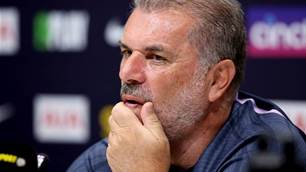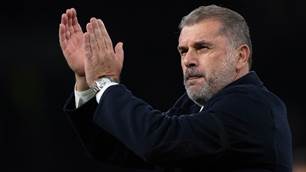WHY Arsenal simply cannot afford to lose their midfield maestro – arguably their greatest ever – to his original stomping ground of the Nou Camp in Spain.
On a balmy North London evening last September, Francesc Soler Fabregas showed precisely why the world's greatest team are quite so keen to sign him. The Barcelona directors will have been drooling as they watched the Spanish midfielder score twice and set up two goals as Arsenal put Braga to the sword 6-0.
This was an individual performance so sparkling it had The Daily Telegraph's Henry Winter purring. "Fabregas was particularly immense, always at the heart of the action, always conducting the Arsenal orchestra like a maestro," he wrote. "Such a virtuoso display simply reminded a bewitched audience how vital it had been that Arsenal resisted Barcelona's summer courtship of their captain. As if they needed reminding."
Of course the Emirates faithful didn't need reminding. Last summer, they watched their No.4 lay on the winner for Iniesta as Spain triumphed over Holland in the World Cup final. Fabregas has now won the World Cup and European Championship with Spain - yet he has still to win a medal with Arsenal since a lucky FA Cup victory over Manchester United in 2005. It can only be a matter of time before he outgrows the club. Some would say he already has.
At just 23, Fabregas is the greatest midfielder who has ever played for Arsenal - surpassing even the magnificent Liam Brady. The question now is whether he can become the greatest in the world.
That's not mere hyperbole. Those closest to him go even further with their praise of the star midfielder. When Arsene Wenger first signed the youngster in 2004 he described him to Arsenal's goalkeeping coach Bob Wilson as "the best 17-year-old player I've ever seen." "But wasn't Pele the best 17-year-old?" Wilson asked. "I am telling you about a player who plays in a different role to Pele," said Wenger. "Pele was a striker, not a creator."
Three years later, with Fabregas barely out of his teens, Wilson confirmed the player was a match for any of the Gunners' greats. "Cesc has Dennis's [Bergkamp] brain," he said, "the combativeness and touch of Patrick Vieira, the marauding spirit of Rocastle and Thomas, and the magic wand of Liam Brady's left foot, only in his right boot. I can't praise him enough; he's up there with the best of them."
Each season, the weight of expectation seemed to grow lighter on Cesc's broadening shoulders. Every term he has developed as a player. To his superlative ability to create goals, he has added a burly strength and the icy temperament required to score them too. Last campaign saw his best haul yet, contributing 15 assists and 19 goals.
"I believe he is more relaxed - there is less tension in his finishing," explained Wenger. "Also he has gained more physical power. You can see he resists much more the runs of his opponents." Wenger's change of tactics from 4-4-2 to 4-3-3 also played a significant part in liberating his captain by reducing the player's defensive responsibilities and allowing him to play further up the pitch.
Continues on next page...
Related Articles

Postecoglou looking to A-League to 'develop young talent'
.jpeg&h=172&w=306&c=1&s=1)
Big change set to give Socceroos star new lease on life in the EPL













